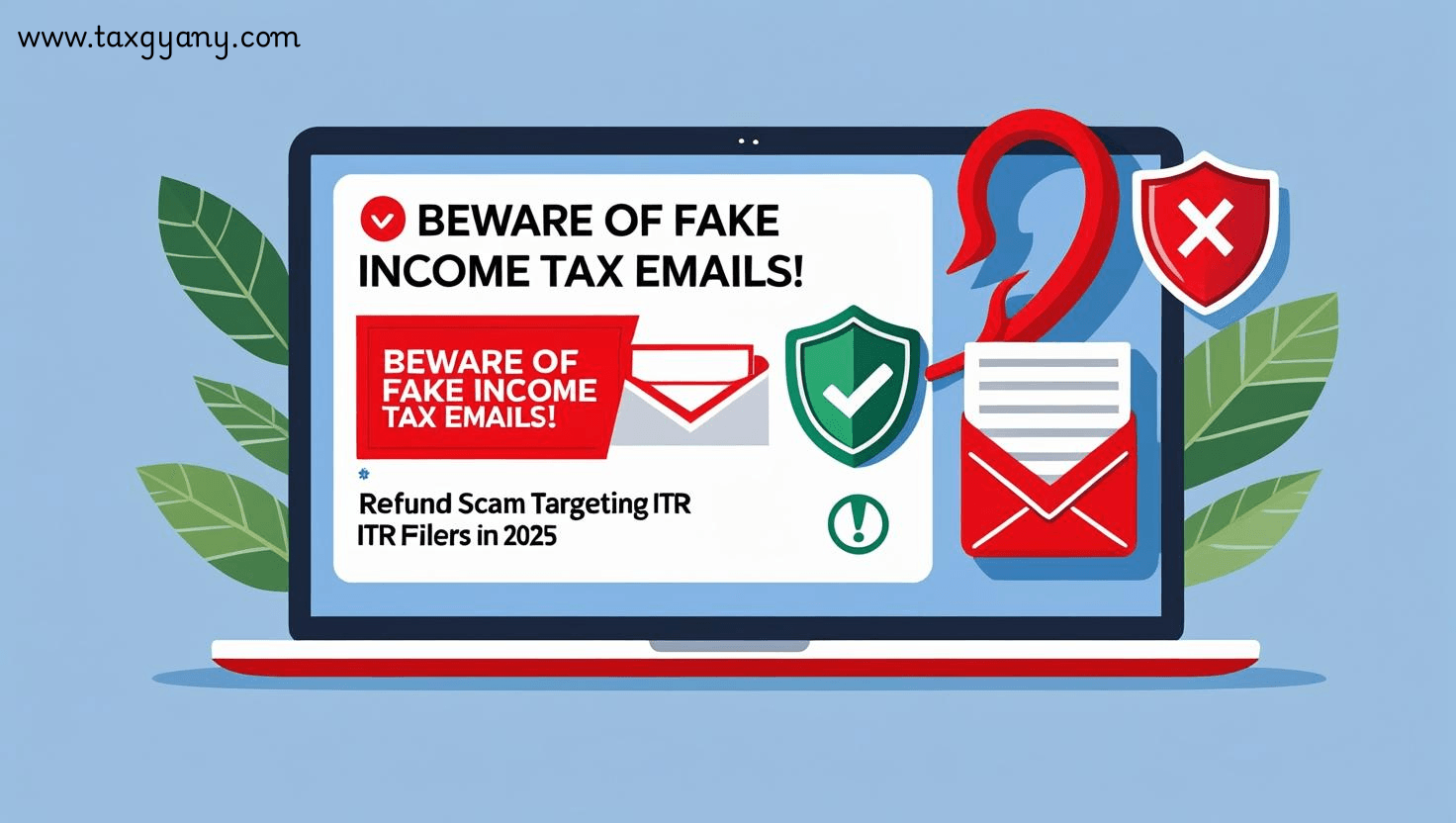Beware: Fake Income Tax Refund Emails Targeting Taxpayers During ITR Filing Season 2025
As the Income Tax Return (ITR) filing season for the assessment year 2025–26 picks up pace, taxpayers must remain alert — not just about deadlines and forms, but also about fraudulent emails that are being circulated in the name of the Income Tax Department.
Recently, many taxpayers have reported receiving fake refund emails claiming they are eligible for a ₹50,000 refund and urging them to complete a so-called “manual verification.” These emails are part of a phishing scam and pose a serious threat to your personal and financial data.
The Growing Threat of Phishing During Tax Season
These emails are often very professionally worded and may include an “official-looking” subject line like “Notification Regarding Income Tax Refund for AY 2024–25.” Some emails contain links asking the taxpayer to click and fill in their bank account details, PAN number, or even passwords and OTPs.
Others may contain attachments or downloadable files that claim to complete verification but are actually malicious software or malware designed to steal your information.
The central claim in these emails is that if the refund amount exceeds ₹25,000 or ₹50,000, then the taxpayer must undergo a manual verification process due to RBI and PMLA guidelines. This is entirely false.
PIB Fact Check and Official Clarification
The PIB Fact Check Unit, which is responsible for identifying fake news and misinformation, has officially confirmed that such emails are not sent by the Income Tax Department. These emails are attempts to commit fraud, and taxpayers are advised to not open, click, or respond to them.
Here is what the Income Tax Department and PIB Fact Check have made clear:
The department never asks for sensitive information like passwords, OTPs, or bank PINs through emails or SMS.
There is no such thing as “manual verification” through email links for refunds.
Refunds are processed only through the official income tax e-filing portal: https://www.incometax.gov.in
What a Scam Email Looks Like
Here’s an example of how these emails are structured:
Subject: Refund Notification – AY 2024–25
Message: “Dear Taxpayer, You are eligible for a refund of ₹50,000. As per RBI and PMLA norms, manual verification is required. Kindly click the link below to verify your information and receive the refund amount.”
The email then provides a fake link or download button, which if clicked, may lead to the theft of your banking or personal information.
How to Stay Safe While Filing ITR
It’s critical for taxpayers to stay aware during this ITR season. Here are a few trusted practices to follow:
Always use the official portal for filing returns: https://www.incometax.gov.in
Check the sender’s email ID carefully. Official government emails end with @gov.in or @incometax.gov.in
Never download attachments or click on suspicious links from unknown senders.
Do not share your Aadhaar OTP, net banking password, debit/credit card PIN, or any such confidential details online or over the phone.
If you receive a suspicious email, you should report it immediately by forwarding it to:
You may also register a complaint at the National Cyber Crime Portal.
Final Words
With over one crore ITRs already filed this year, the scammers are trying to take advantage of this high-activity period. Whether you’re a salaried employee, a business owner, or a pensioner, don’t let your vigilance down.
Tax filing is important, but protecting your identity is even more critical.
Make sure to file your returns only through official platforms and always verify the authenticity of any message claiming to be from the Income Tax Department.
Income tax refund scam 2025, fake refund emails, phishing income tax department, ITR refund email fraud, AY 2025-26 tax filing, PIB fact check tax, cybercrime refund scam, manual verification income tax, fake income tax email alert, refund above 50000 scam, how to report tax scam India

